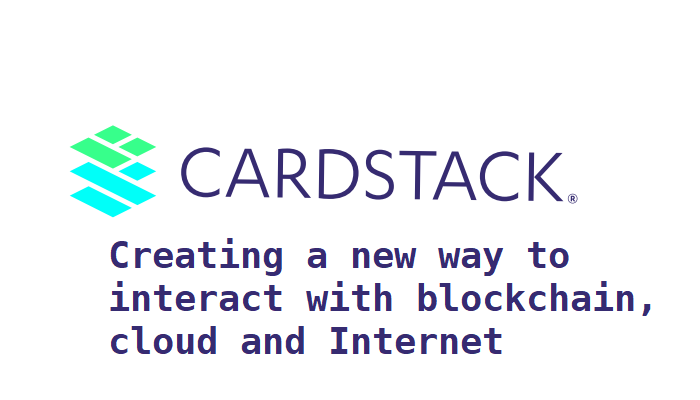Cardstack - bringing software to a new level of interaction
We all know that when it comes to smartphones, there are really only two major camps: iOS and Android. People love to point out disadvantages of the enemy software and brag about the advantages of their own. In my opinion these arguments are quickly losing ground, as in the recent years the two operating systems have taken the best features from each other and evolved along similar lines.
The problem with this rivalry and the homogenizing of software in general is that we, the customers, lose options. Due to Apple's success and popularity, every other developer followed suit on many decisions that iOS has made, even if it wasn't ideal for the long run. Just to mention a few, iPhones have paved the way for and made it acceptable for smartphones to have sub par battery life, predatory subscription services, separation of many communication services from users outside the ecosystem, overcomplication of file transfer and sharing.. The list goes on.
Personally, I have been on the Apple bandwagon for a few years, before switching back to Android last year. The reason for the switch was because of how slow my iPhone has become, bogged down with a multitude of applications, each serving a particular vital function, but each also requiring its own login and password, separate subscriptions, substantial storage on my phone and a lot of battery power. After the switch, I was surprised to see that Android has been met with the same exact problem. 'There is an app for that' philosophy led to a multitude of completely separate apps fighting for a place in your pocket.
'Someone must have thought of a better, less cluttered system,' were my thoughts, but to my surprise everyone is so involved with what's popular that there is very little place for true innovation and practicality. Luckily, through my involvement with blockchain technologies I stumbled upon a project that aims to streamline the adoption of different cryptocurrencies for an average, casual user and it struck me that they might have solved my problem along the way.
Cardstack is developing an interface for communication between the user, the blockchain and the cloud. The system they propose would radically change the economic model for rewarding software developers, by integrating blockchain and smart contracts and at the same time make the user experience cohesive, by abandoning the silos of apps that is the industry standard today. So the solution is after all decentralization, just to a greater extent than I expected.
Let's take a look at the Cardstack system more closely and see how it works. First thing first, they want to break up the applications that we have today into smaller functional pieces, each responsible for a basic feature be it on the blockchain, the cloud, or a service provided on the internet. These functional pieces are called 'cards' and they can be switched around and matched together, triggered by previous cards, etc. to ensure that each user has their own personalized experience that is tailored exactly for them.
Examples of such cards would be: payment, identity verification, messaging, sales report, agreement, and many more. The functionality of cards are truly endless, but the beauty of them is that you would need to input your information only once and you wouldn't need to worry about a multitude of services, subscriptions, memberships, split userbases, etc. So as you can see how that would speed up the rate of blockchain based services adoption by casual users, as well as remedy the imperfection of current application silos.
Everything is coordinated by the Cardstack Hub that receives the user's input and connects them to the right data systems, 'stacks the cards in favor of the user' so to say, and always evolves according to the user's needs. Once enough people use the system and features accumulate, common data elements can be grouped together, creating a catalog of ready to use cards for new users to chose from.
Important to mention is the fuel of the Cardstack Hub - the Cardstack token (CARD). These are ERC20 standard tokens bought with fiat or cryptocurrency that can be transferred into Software and Services coupons (SSC). SSC are in turn used to establish agreements with software developers. There is a retainer-client relationship built in that makes sure that proper royalties and user fees are paid.
Nowadays the majority of the apps are free and riddled with advertisements, while the paid app sector is effectively dead. Cardstack is sure to attract many software developers that want to be properly compensated for their work and customers who want a good product, but do not want to spend more money than it's worth. Even before release Cardstack is already collaborating with many decentralized projects all around the world, involved in media, art, science and more.
I can't wait to get my hands of Cardstack as it would significantly improve my day to day use of blockchain, cloud based services and the Internet in general. If you are interested to take part in the token sale, or just want some more concrete information about the considerable technology behind Cardstack, please check out the links below.
How many apps do you use? Are any of them blockchain based? What do you think is missing, in order to achieve widespread adoption of blockchain? Tell me in the comment section.
Author's bitcointalk: OceanWind33

Vote exchange site https://mysteemup.club